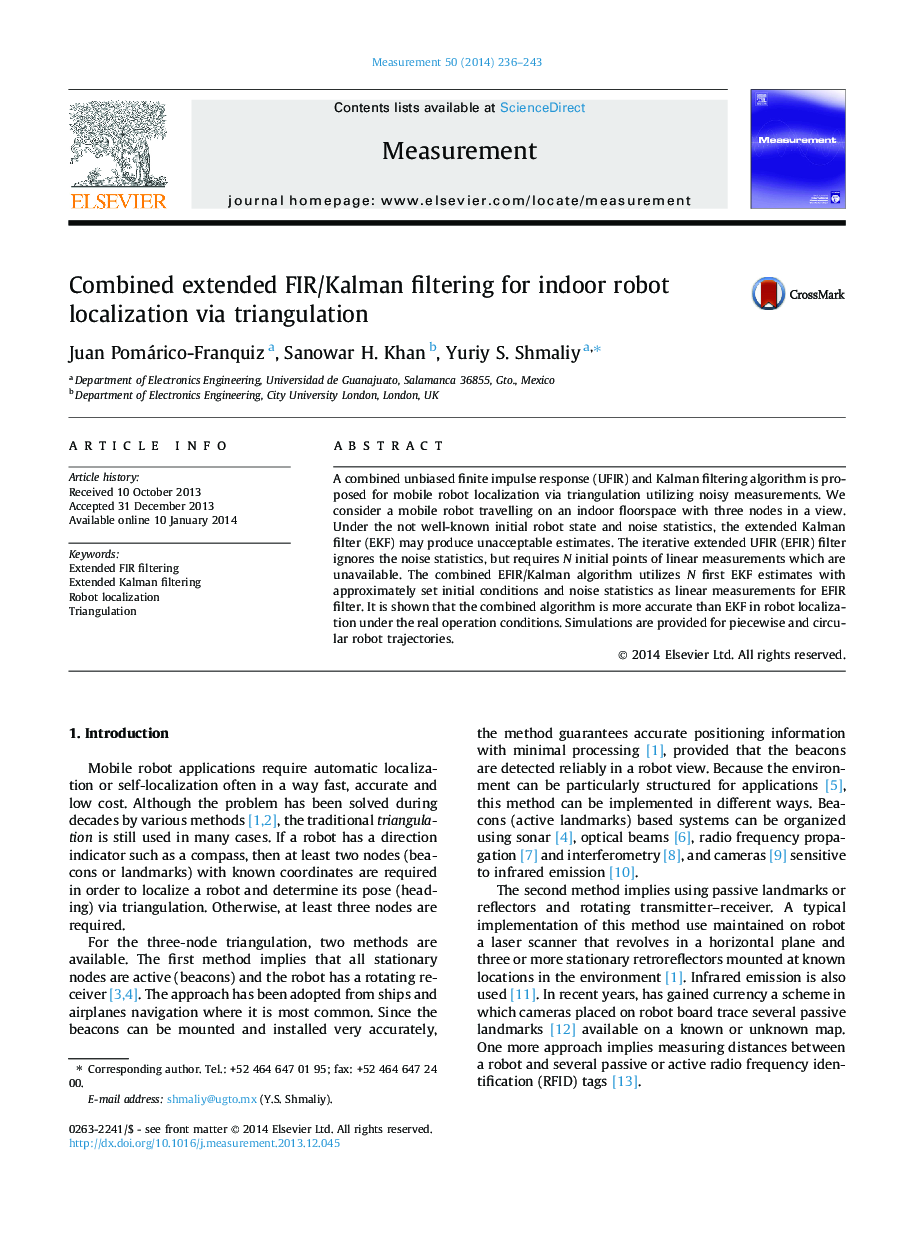| Article ID | Journal | Published Year | Pages | File Type |
|---|---|---|---|---|
| 730271 | Measurement | 2014 | 8 Pages |
•Robot localization is often provided via measurements using triangulation.•Extended Kalman filter is not accurate enough under the unknown noise statistics.•The combined extended FIR/Kalman filter allows for higher accuracy.•Random noise is lower in the extended FIR/Kalman estimates.
A combined unbiased finite impulse response (UFIR) and Kalman filtering algorithm is proposed for mobile robot localization via triangulation utilizing noisy measurements. We consider a mobile robot travelling on an indoor floorspace with three nodes in a view. Under the not well-known initial robot state and noise statistics, the extended Kalman filter (EKF) may produce unacceptable estimates. The iterative extended UFIR (EFIR) filter ignores the noise statistics, but requires N initial points of linear measurements which are unavailable. The combined EFIR/Kalman algorithm utilizes N first EKF estimates with approximately set initial conditions and noise statistics as linear measurements for EFIR filter. It is shown that the combined algorithm is more accurate than EKF in robot localization under the real operation conditions. Simulations are provided for piecewise and circular robot trajectories.
